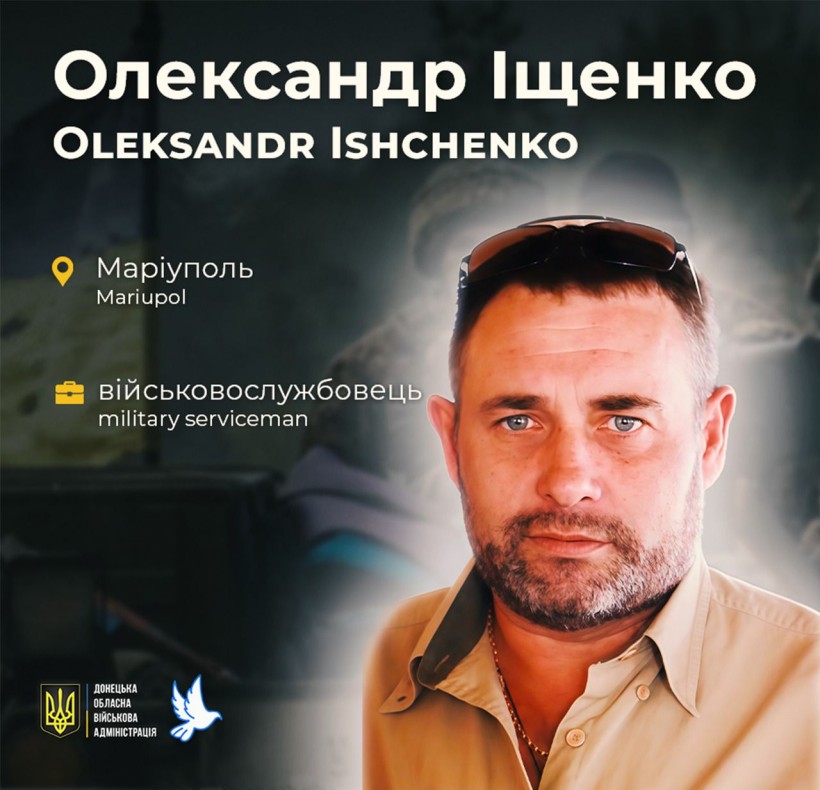
Defender Oleksandr Ishchenko was tortured to death in Russian captivity on July 22, 2024. A forensic medical examination determined the cause of death to be "closed blunt chest trauma resulting from contact with a blunt object."
He also suffered fractures of nearly all his ribs, a punctured chest cavity, and went into pain shock. Oleksandr was 55 years old.
He was born in Mariupol. He studied at School No. 33 and later at Vocational School No. 4. After completing military service, he worked with his father at the Azovstal steel plant. However, since childhood, he had dreamed of the sea. In 2000, he graduated from a maritime academy and soon set out on his first voyage, working as an engine room motorman.
“From then on, my husband’s life was tied to the sea—it was his soul’s calling. He was proud to have traveled to every corner of the world. Over 27 years in the navy, he received numerous honors and certificates of appreciation, including one for saving a ship,” said his wife, Alyona.
They were together for 34 years, having met when they were both 16—on the “Pishchanka” beach in Mariupol. She recalls that in his free time, Oleksandr enjoyed fishing and collecting stamps.
In 2015–2016, Oleksandr participated in the Anti-Terrorist Operation (ATO) as part of the 128th Separate Mountain Assault Brigade from Zakarpattia.
On February 17, 2022, he returned from another voyage and just ten days later, on February 27, voluntarily joined the local territorial defense forces. He was later transferred to the Azov Regiment, where he served as a driver. During the fighting, he suffered a severe concussion.
In May, he was captured during the evacuation from Azovstal. Together with fellow soldiers, he was held in a detention center in Donetsk for 13 months. In July 2023, he was transferred to a detention center in Rostov-on-Don.
“They were sentenced there. And then came another 13 months of brutal torture. Oleksandr was courageous, intolerant of injustice, and refused to submit or betray his country. We were able to exchange letters—he wrote only in Ukrainian and wasn’t afraid of beatings. He wrote that he would do it all over again, that he would go to defend his land once more, because he truly loved his country,” said his wife.
For 26 months, the family fought for his release.
“Oleksandr was an exceptionally kind, compassionate, and sincere person. His heart was always open to helping others—even in captivity, he would not allow the weak to be mistreated and would defend women. He dreamed of building a farm and providing people with quality food… He adored his daughter and loved his city deeply. Whenever he returned from a voyage, we would walk the streets of Mariupol every day, by our beloved Azov Sea,” Alyona said.
The family repatriated the Hero’s body to Ukraine on their own. He was buried in the Alley of Glory at Krasnopil Cemetery in Dnipro.
Oleksandr is survived by his wife, daughter, son-in-law, and granddaughters.
At 9:00 a.m.—a national moment of silence. The Donetsk Regional Military Administration and the Heroes’ Memorial platform remember the residents of Donetsk region who were killed by Russian forces.